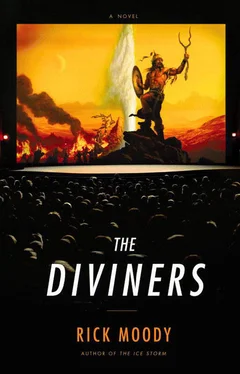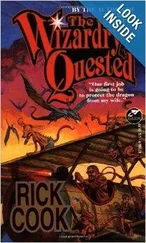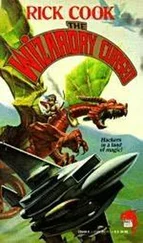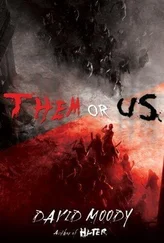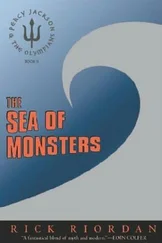Even among fans, the first season was noteworthy for clichés of the horror genre. The first season was mainly about teenagers. If the program had considerable insight into middle-class teenagers and their fashionable obsessions with copyright infringement and low-riding jeans, it was right in step with most fare on the UBC network. But when the second season introduced the grizzled railroad employee from Stamford, Mike Woodwell, it was clear that something new was happening on network television. Ratings began to creep up. A lineman on the swing shift for Metro-North, Woodwell lost his wife early in the second season to lupus. Never did the howl of a werewolf on a windswept city street sound more heartrending or more appropriate. Woodwell’s subsequent courtship of a black barmaid from Port Chester, Felicia Adams, and his affection for her two sons, one of whom is disabled, was one of the most graceful introductions of an interracial romance in television history. As the critics remarked, there was chemistry between the two. It was about this time that Deborah Weller, PhD, Annabel Duffy’s mom, began to fall for the charm of the show. She got her daughter hooked the next spring when the DVDs of the first season, with extra commentary, became available.
The Thanksgiving episode of the fourth season, according to teasers, also concerns Felicia Adams. Adams has long since broken up with Woodwell, who nonetheless pines from afar. (He seems destined to be one of those television characters who can never work out how to live.) Felicia is now in love with a strong, charismatic African American character, Edwin Watson, who works at the Life Savers plant in Port Chester but who is currently in danger of having his murky past as a low-level drug dealer revealed by a woman who wants to have an affair with him. In fact, at the end of episode nine, Edwin quits the job at Life Savers, without telling Felicia, though he continues to bring back a roll of candy for the two Adams boys each day.
Felicia is not a perfect mother, nor a perfect barmaid, since she tends to go missing several days a month. Occasionally she’s had jobs that were offered her by other members of the pack, but even so she’s between positions at present, except for fill-in shifts at an Irish bar at Thanksgiving. Where is the holiday turkey going to come from? And the stuffing and the cranberry sauce and the pies? Who’s going to bake the pies? The predicament is made even worse because her elder son, Bennett, a scholarship student at the elite Fairfield Academy, intends to go to a big party tonight at the home of the Burns family. You know, the Burns family. The twin brothers of astonishing good looks, and the sister who’s already tearing up the Seventh Avenue fashion shows as a model. Of course, Bennett is aware of the ironies of eating Hamburger Helper and then going to a party with the high-fashion-model daughter of the Burns family, who he’s pretty sure has a crush on him, just as he does on her.
Naturally, each episode has its narrative crisis that can only be faced by the pack as a whole. In the Thanksgiving episode, this crisis has to do with the fact that the ubiquitous deer of Fairfield County are beginning to suffer with a strange, inexplicable wasting disease, and the governor of the state, an independent in the tradition of Lowell Weicker, has declared open season, with high limits, for the deer hunters of the Nutmeg State. No one is meant to eat any of the venison until state regulators are certain that the danger is passed. But it’s okay to shoot at deer. The wolf pack, which will be gathering this weekend for the full moon, is in grave danger not only of being pruned in the indiscriminate blasting away at bucks and does but also liable to be famished, too desperate to go without deer, notwithstanding the wasting disease.
This is where the episode begins. In a state park near Bedford, where, at dusk, a pair of bow hunters is sharing a flask and trying not to make a lot of noise. Suddenly, a commotion in the woods. A buck sweeps by, followed close behind by a pack of wild dogs. What a moment of great beauty. Must be an eight-point buck, his rack a beautiful thing to encounter. The crossbow hunters raise their medieval weapons — which have carbon arrow shafting and vibration dampers and pendulum sighting systems and cat whisker string silencers — with intent to take out this white-tailed specimen. They have fantasies of venison steaks in their freezers all winter long. But suddenly there are these dogs and they are, uh, they are extremely large dogs, dogs such as these hunters have never seen before. The pack of wild dogs seems to swell and grow in ways that begin to frighten the men. There must be thirty or more of them! The men shrink back under the canopy of a pine, which gives comfort for a moment, until the pack takes note of them. A group of fifteen or so of the younger pups, eager to kill and flush with their own mad energy, turns and heads for the bow hunters.
Now the credit sequence with the moonrise over Darien and New Canaan. Moonrise over the soccer practice at Wilton High. Then the short takes of the cast changing into wolves while there is mournful slide guitar and harmonica wailing in the background. The Werewolves of Fairfield County, brought to you by the United Broadcasting Company. In Newton, Massachusetts, Annabel Duffy notices during the commercial break that instead of watching the program, her brother Tyrone has a book in his lap. And in his hand there is a black felt-tip marker. It can mean only one thing! Her brother is making art! Defaced books! Her mother brings in popcorn from the kitchen and sets it on the table, and the Reverend Duffy takes the popcorn, forgetting to thank his wife, and fills his mouth with it.
In Santa Monica, Jeffrey Maiser is by himself, in an enormous family room that has no family in it. On three walls there are books, the vast majority unread. He faces a massive entertainment complex with all the latest bells and whistles, accented with a few tennis trophies from his wild youth. The television itself has a plasma screen, and there are so many speakers in the family room that he can’t even remember where they all are. He has a scotch on the rocks, and he is sitting in the black leather recliner, and he has turned off every phone in his gigantic and empty house, and he has put his cell phone under a pillow on the sofa, and he has prepared himself for the one unalloyed bit of good news in his programming week. He can’t remember exactly what happened in the last episode, and he can’t remember what’s supposed to happen for the rest of the season, but he can remember what the advertising rates are for the program. The programming executives should be really pleased, even if they will have to pay millions per episode to renew beyond the 2001 season. But that’s what’s so great about a television program where any character could be killed at any time. You can always hire a new cast.
So where were we? A pack of wolf pups is trained on two bow hunters, all of whose machismo, all of whose high-visibility gear and Ted Nugent rhetoric, cannot save them now. Hesitating only momentarily, like hunting dogs pointing at prey, the pups now stutter-step toward the two huddling figures. One man has let his weapon drop out of his hands in perfect terror, while the other manages to fire off a single camouflage-colored arrow from its high-tension firing mechanism. Because a network television show doesn’t have the budget to do one of those camera-mounted-on-the-arrow-as-it-rips-through-the-forest-and-into-
the-flesh-of-the-enemy shots, we just hear the arrow sizzle in the dusk until there is the searing howl of one of the werewolves. Someone is hit! This of course doesn’t stop the pups. In fact, it emboldens them, and in seconds the two hunters are a pile of bloody laundry. The rest of the pack, almost casually, brings down two magnificent bucks.
Читать дальше
